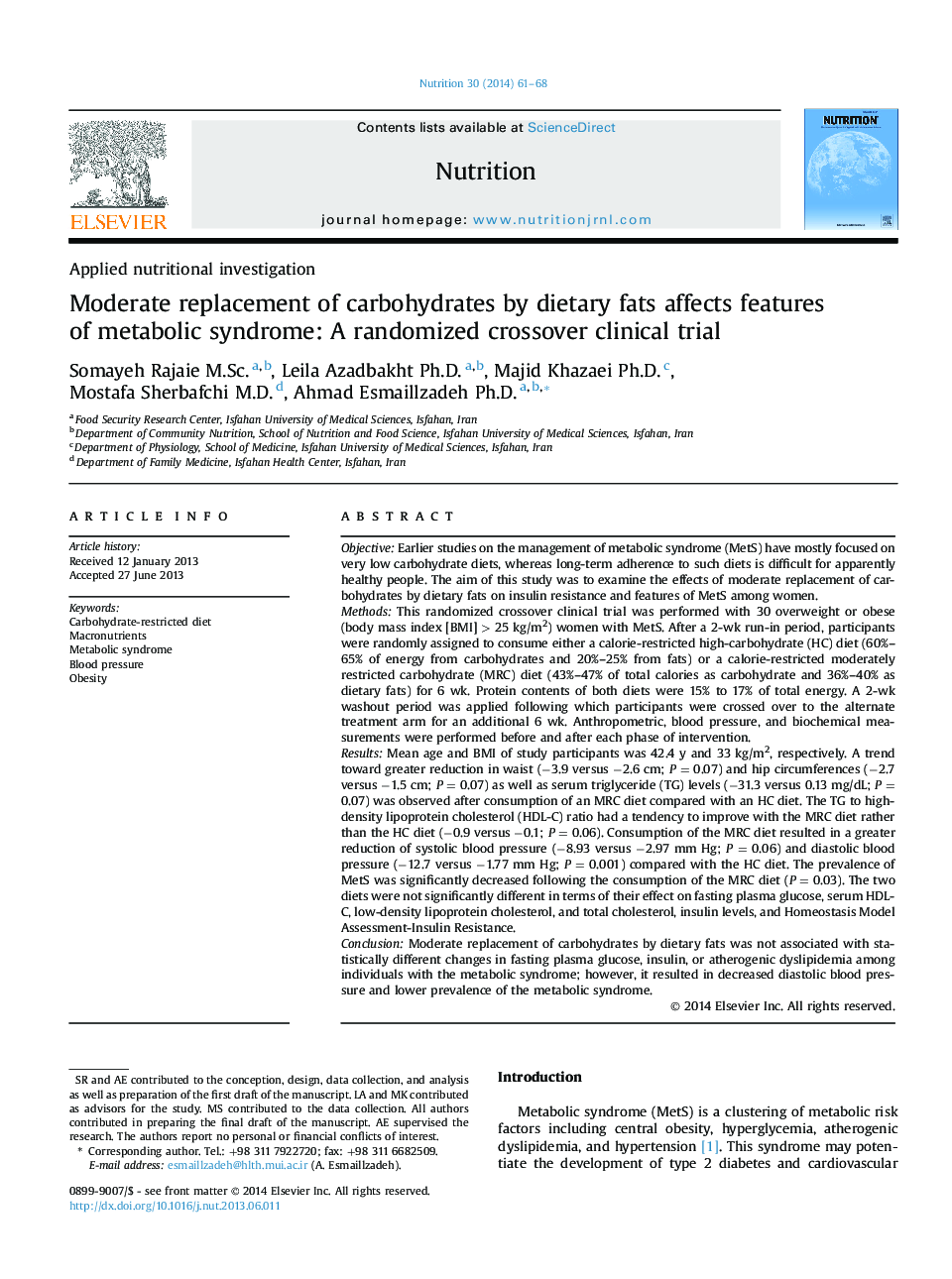| Article ID | Journal | Published Year | Pages | File Type |
|---|---|---|---|---|
| 6089740 | Nutrition | 2014 | 8 Pages |
ObjectiveEarlier studies on the management of metabolic syndrome (MetS) have mostly focused on very low carbohydrate diets, whereas long-term adherence to such diets is difficult for apparently healthy people. The aim of this study was to examine the effects of moderate replacement of carbohydrates by dietary fats on insulin resistance and features of MetS among women.MethodsThis randomized crossover clinical trial was performed with 30 overweight or obese (body mass index [BMI] > 25 kg/m2) women with MetS. After a 2-wk run-in period, participants were randomly assigned to consume either a calorie-restricted high-carbohydrate (HC) diet (60%-65% of energy from carbohydrates and 20%-25% from fats) or a calorie-restricted moderately restricted carbohydrate (MRC) diet (43%-47% of total calories as carbohydrate and 36%-40% as dietary fats) for 6 wk. Protein contents of both diets were 15% to 17% of total energy. A 2-wk washout period was applied following which participants were crossed over to the alternate treatment arm for an additional 6 wk. Anthropometric, blood pressure, and biochemical measurements were performed before and after each phase of intervention.ResultsMean age and BMI of study participants was 42.4 y and 33 kg/m2, respectively. A trend toward greater reduction in waist (â3.9 versus â2.6 cm; P = 0.07) and hip circumferences (â2.7 versus â1.5 cm; P = 0.07) as well as serum triglyceride (TG) levels (â31.3 versus 0.13 mg/dL; P = 0.07) was observed after consumption of an MRC diet compared with an HC diet. The TG to high-density lipoprotein cholesterol (HDL-C) ratio had a tendency to improve with the MRC diet rather than the HC diet (â0.9 versus â0.1; P = 0.06). Consumption of the MRC diet resulted in a greater reduction of systolic blood pressure (â8.93 versus â2.97 mm Hg; P = 0.06) and diastolic blood pressure (â12.7 versus â1.77 mm Hg; P = 0.001) compared with the HC diet. The prevalence of MetS was significantly decreased following the consumption of the MRC diet (P = 0.03). The two diets were not significantly different in terms of their effect on fasting plasma glucose, serum HDL-C, low-density lipoprotein cholesterol, and total cholesterol, insulin levels, and Homeostasis Model Assessment-Insulin Resistance.ConclusionModerate replacement of carbohydrates by dietary fats was not associated with statistically different changes in fasting plasma glucose, insulin, or atherogenic dyslipidemia among individuals with the metabolic syndrome; however, it resulted in decreased diastolic blood pressure and lower prevalence of the metabolic syndrome.
